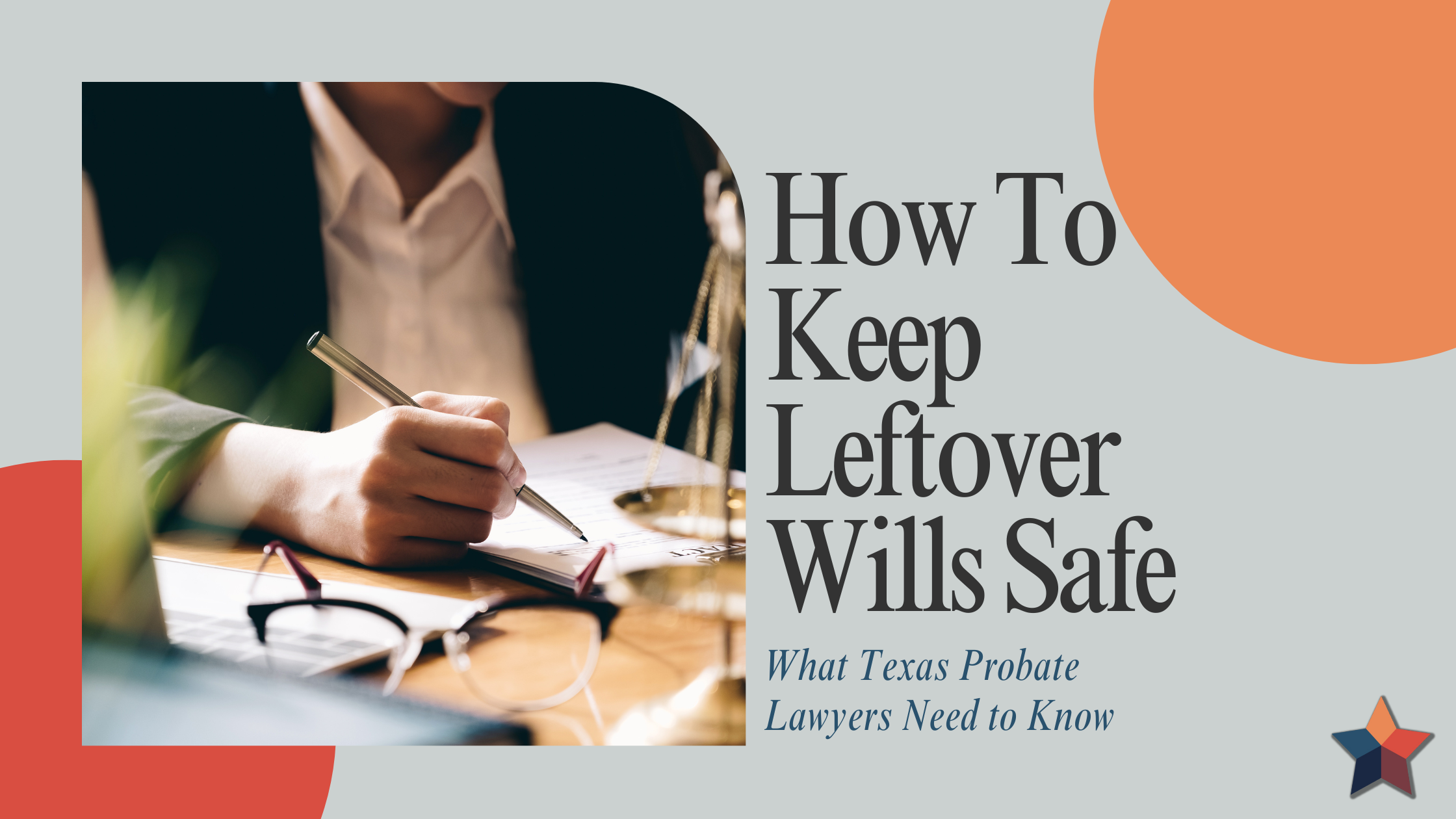How to Keep Leftover Wills Safe — What Texas Probate Lawyers Need to Know
Published on March 11, 2024 Law Practice Tips

This article was based on “Leftover Wills” by Attorney Russell W. Hall
Probate is not mandatory in Texas. In fact, sometimes probating a will may not even be necessary. This occurs most commonly when there are no probate assets to collect. While probate may not be mandatory now, you may need to probate a will later. Here is what Texas probate lawyers need to know.
Leftover Wills Still Serve a Purpose – Here’s How You Can Keep Them Safe
All too often, the search for a will can result in a loss of time and resources. Perhaps a relative’s trust terminates and what remains is paid to the father’s estate. Whatever the case may be, these instances can lead to confusion as the “leftover will” may be difficult to find.
Probating a will when the original is lost is one of the most complicated situations you can find yourself in. The good news is that it can be easily avoided. Here’s what you should always do with leftover wills.
If fewer than four years have passed since the testator died, ask a lawyer to determine if probate is necessary. If the answer is no, then file the original will with the county clerk. Choose a county clerk with probate jurisdiction, meaning the county where the decedent lived. If the decedent had no Texas residence, then it will be necessary to look into the venue statutes (Estates Code, Chapter 33) to determine where the will belongs.
Filing a Will is Always Mandatory
While probate is not mandatory, filing a will is. Estates Code, Section 252.201 requires the custodian of an original will to file the will as soon as they learn of the testator’s death. Refusing to file the will can result in arrests, confinement, and damages. This applies to lawyers as well.
There is no fee for filing a will under Section 252.201. Russell W. Hall suggests including the citation to guide clerks who are not used to the process. This is because very few people file wills without an application, so it is helpful to remind the clerk why there is no charge.
Upon filing, the index becomes a public record. It is now available to support any probate application filed then or at a future date.
Other Tips to Keep in Mind
Let’s say you’re holding on to an old will and you’re unsure if the testator is alive or where they lived. To determine this, check Social Security’s Death Index. This is a free database of death records from the U.S. Social Security Administration’s Death Master file.
If you file a will under Section 252.201, give notice to each person named in the will. This is yet another detail that is not mandatory for custodians, but can help the family understand the process in case probate is required later.
By filing leftover wills, the hunt for old wills will begin and end with the county clerk where the decedent lived. Go online and check the county clerk’s probate index to find the information you’re looking for.
For a closer look at what to do with leftover wills, read this blog post from Russell W. Hall (Editor and Project Director for the 2022 edition of Texas Probate System).
Texas Bar Practice is here to help you overcome any probate issue. Add Wills Road Map: Practical Considerations in Will Drafting, 3rd ed. and Texas Probate System, 2022 ed. to your law library today!
.png)
Texas Bar Practice
Texas Bar Practice works with the most experienced and knowledgeable judges and attorneys to prepare and edit books, practice manuals, and legal forms to help lawyers and judges better serve the public with professional, accurate, and timely information.